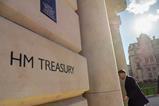Around 750,000 more people will become higher-rate taxpayers from April 2011, according to analysis by the Institute for Fiscal Studies (IFS).
Its analysis found the increase in higher-rate taxpayers could occur as a result of a reduction in the level of income at which the higher rate takes effect.
According to the IFS, higher earners will be hit the hardest in April, as they will lose out from the national insurance (NI) increase, they will not gain from the increased income tax allowance and a few will lose from the restriction in tax-free contributions to pensions.
In addition, the increase of £1,000 in the tax allowance will take 500,000 people out of tax altogether.
The IFS has calculated the richest tenth, which includes single people without children, earning more than £40,000, and single earner couples with two children earning more than £100,000, will on average lose 3% of their net income, compared with an average of 1% for the population as a whole.
James Browne, a senior research economist at the IFS, said: “The set of the changes coming in April is complex and the pattern of gains and losses reflects this.
“Perhaps less remarked upon are the changes in marginal tax rates.
“While taking 500,000 out of tax altogether, the way the government has increased the personal allowance to ensure that higher rate taxpayers do not gain, will increase the number of higher-rate taxpayers by 750,000.
“We calculate a further 850,000 would be brought into this higher rate bracket by 2014-15 if the government reaches its ambition of a £10,000 allowance in the same way.”
Read more articles on the April 2011 tax changes








